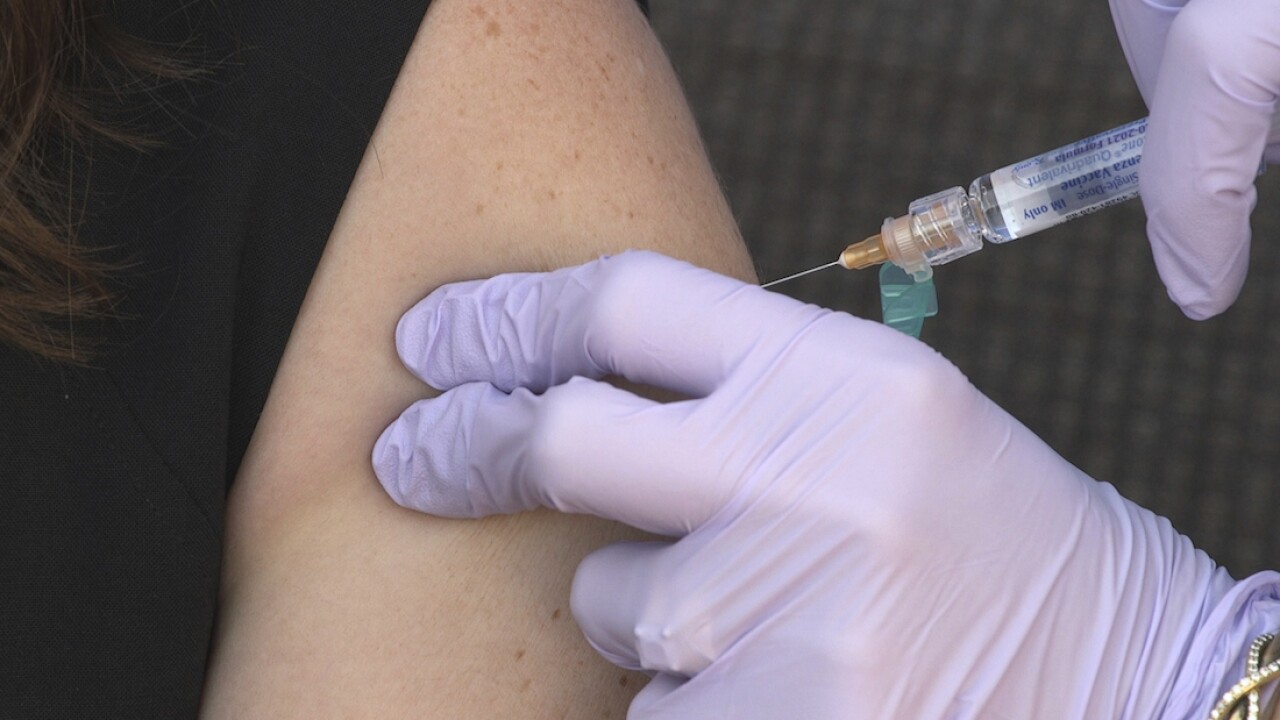INDIANAPOLIS — The Indiana State Department of Health announced Monday that the first recorded pediatric death from influenza has occurred.
The news of the first pediatric death follows last week's report that 24 Hoosiers had died from influenza this season.
With the recent string of findings, Indiana health and hospital officials are encouraging eligible Hoosiers to get vaccinated against influenza (flu) as soon as possible, as high levels of transmission are significantly impacting hospitals across the state.
“Like many states, Indiana is experiencing very high levels of flu activity right now,” State Health Commissioner Kris Box, M.D., FACOG said. “With the upcoming holidays, travel and family gatherings, it is more important than ever to protect yourself and those around you from this highly contagious respiratory infection. This year’s flu vaccine continues to be a good match for the circulating strains, and it is your best protection against a severe, and possibly tragic, outcome.”
With many respiratory illnesses currently circulating, including flu, respiratory syncytial virus (RSV) and COVID-19, Indiana hospitals are experiencing significant patient caseloads, said Indiana Hospital Association President Brian Tabor.
“Hospitalizations are currently trending above last year’s levels, and at this pace, Indiana could meet or exceed the record levels of inpatient capacity we saw during the peak of COVID-19,” Tabor said. “As of this week, inpatient volume jumped 15 percent, with numbers surpassing 11,000.”
Tabor and Box urged Hoosiers to seek routine testing for respiratory illnesses or care for mild symptoms through urgent care centers or a family physician’s office rather than through an emergency department whenever possible.
“Our hospitals are dealing with the triple impact of influenza, RSV and COVID-19 right now, along with normal emergencies and illnesses, and we want to keep emergency rooms clear for Hoosiers who urgently need them,” Box said.
The flu is “spread by respiratory droplets released when infected people cough or sneeze nearby or when people touch surfaces or objects contaminated with those infectious respiratory droplets. People can also become infected by touching surfaces or objects contaminated with influenza viruses and then touching their eyes, mouth or nose,” according to the ISDH.
Symptoms include:
- fever of 100 degrees Fahrenheit or greater
- headache
- fatigue
- cough
- muscle aches
- sore throat
While there is no cure for the flu, some medications can help ease symptoms, according to health officials.
Healthcare System Impact
“We’re overloaded and the men and women out there in the hospitals are doing their best," Indiana Hospital Association President, Brian Tabor said.
On Monday, IHA noted 78% of all adult hospital beds in the state are filled. Cases according to the state health department are climbing — as deaths doubled in a week’s time.
WRTV reporter Nikki DeMentri asked Tabor: "Can our healthcare system handle this?"
Tabor answered: "Our healthcare system, I think we’re going to do our best. Our healthcare system is incredibly resilient, but what I will say is each year we’ve seen these spikes, first with COVID, now with flu, it’s taking it’s toll.”
Indianapolis EMS said in the last month, it has seen a 30% increase in influenza-like calls. In November of this year, IEMS treated 2,178 patients and averaged 80 patients a day.
From December 1-11 of this year, it treated 967 patients and average 90 patients a day. Compared to the same time frame in 2021, IEMS treated nearly 16% more total patients and 25% more averaged patients a day.
How can you tell if you have the flu, allergies or the traditional cold?
If you are feeling the effects of allergies, you typically won't have a fever or much fatigue or body aches. If you have a cold, you might have a mild fever and some body aches. You might feel weak and even have some ear congestion. Colds generally last about a week.
If you're diagnosed with the flu, wash your hands frequently and thoroughly, avoid touching your eyes, nose and mouth with your hands and stay home.
-

Sun bear predicts winner of the Peach Bowl
Xander, the 27-year-old Sun Bear from Zoo Atlanta, believes the IU Hoosiers will emerge victorious and move on to the 2026 CFP National Championship on Monday, January 19, in Miami.
Dozens of workers out at Indiana DCS amid transformation effort
WRTV Investigates has learned a staff shakeup is underway at the Indiana Department of Child Services— the state agency tasked with investigating allegations of child abuse and neglect.
Oregon running back Jordon Davison ruled out for Peach Bowl semifinal
Oregon won’t have running back Jordon Davison for its Peach Bowl College Football semifinal matchup with Indiana on Friday.
City breaks ground on downtown Ritz-Carlton hotel, Live Nation venue
City officials broke ground Wednesday on a development that will bring Indianapolis its first Ritz-Carlton Hotel and a new Live Nation music venue, which will connect to Gainbridge Fieldhouse.






